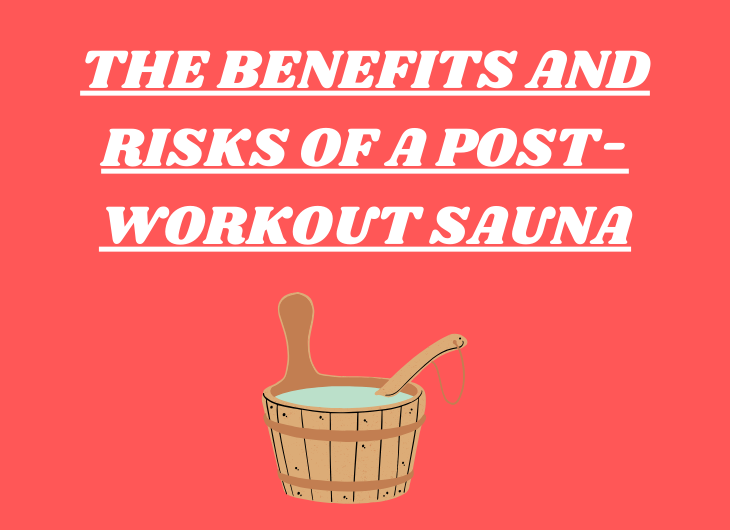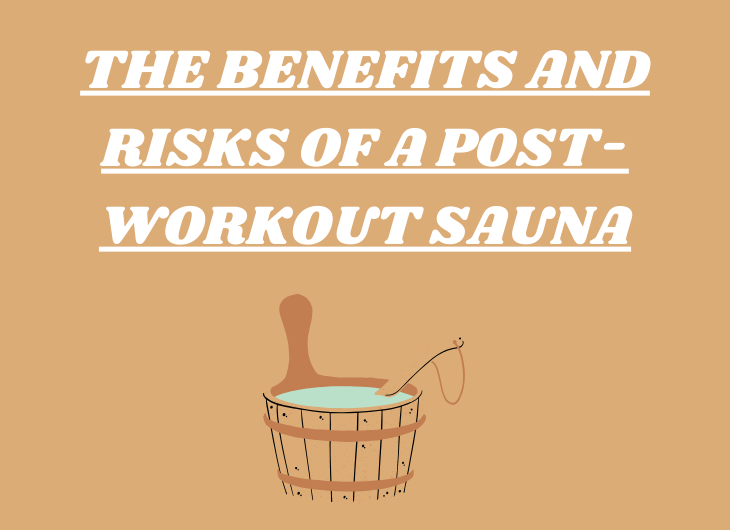The Benefits and Risks of a Post-Workout Sauna
A post-workout sauna is a practice embraced by many fitness enthusiasts and athletes worldwide. The allure of a sauna after an intense workout is undeniable – the relaxing heat, the soothing environment, and the perceived benefits for muscle recovery. However, like any wellness routine, there are both benefits and risks associated with using a sauna after exercise. In this blog post, we will delve into the advantages and potential drawbacks of a post-workout sauna experience to help you make an informed decision regarding its inclusion in your fitness regimen.
Benefits of a Post-Workout Sauna:
1. Muscle Relaxation and Recovery:
After a vigorous workout, muscles can be tense and fatigued. The heat of a sauna helps relax muscles and can alleviate post-exercise soreness. Improved blood circulation during a sauna session can aid in quicker recovery and reduce muscle tension.
2. Sweat and Toxin Elimination:
Saunas induce sweating, which is a natural way for the body to eliminate toxins and impurities. Through sweating, you release excess salts, heavy metals, and other toxins, promoting a sense of detoxification and leaving you feeling rejuvenated.
3. Increased Circulation:
The heat in a sauna causes blood vessels to dilate, improving overall circulation. Better blood flow means oxygen and nutrients are transported more efficiently to muscles and tissues, aiding in their repair and growth.
4. Stress Reduction and Relaxation:
Saunas provide a tranquil and calming environment, making them an excellent way to unwind and de-stress post-exercise. The heat promotes the release of endorphins, the body’s natural mood enhancers, helping you achieve a sense of relaxation and well-being.
5. Enhanced Metabolic Rate:
The increase in body temperature during a sauna session can elevate your metabolic rate temporarily. This can potentially assist in burning extra calories, although it’s essential to remember that the effect is short-term.
6. Improved Skin Health:
The heat and sweating in a sauna can cleanse your skin by opening up pores and promoting better skin health. This can lead to a more vibrant complexion and reduced acne or skin blemishes.
Risks and Considerations:
1. Dehydration:
Saunas can lead to significant fluid loss through sweating. It’s vital to hydrate adequately before, during, and after a sauna session to prevent dehydration and its associated risks.
2. Electrolyte Imbalance:
Sweating in a sauna can cause a loss of electrolytes, including sodium, potassium, and others, which are crucial for various bodily functions. It’s essential to replenish these electrolytes to maintain balance and prevent issues like muscle cramps.
3. Heat Exhaustion and Heat Stroke:
Prolonged exposure to high heat can cause heat-related illnesses such as heat exhaustion or, in severe cases, heat stroke. It’s crucial to limit sauna sessions and pay attention to your body’s signals to avoid overheating.
4. Blood Pressure Fluctuations:
Saunas can cause temporary increases in blood pressure due to the heat. Individuals with hypertension or heart conditions should exercise caution and consult a healthcare professional before using a sauna.
5. Skin Sensitivity and Irritation:
For some individuals, the heat and sweating in a sauna can lead to skin irritation or exacerbate certain skin conditions. It’s advisable to listen to your body and exit the sauna if you experience discomfort.
FAQs: The Benefits and Risks of a Post-Workout Sauna
Q1: How long should I stay in a sauna after a workout?
A1: Sauna sessions after a workout typically last between 10 to 15 minutes. It’s important not to overstay and to listen to your body’s cues for when it’s time to exit.
Q2: Can a sauna session replace stretching after a workout?
A2: Sauna sessions can aid in muscle relaxation, but they should not replace proper stretching exercises. Stretching is essential for improving flexibility and preventing muscle stiffness.
Q3: Should I eat before or after a post-workout sauna session?
A3: It’s advisable to eat a balanced meal after a workout to replenish nutrients and energy. However, avoid heavy meals immediately before a sauna session to prevent discomfort.
Q4: Are there age restrictions for using a sauna after exercise?
A4: While there are no strict age restrictions, it’s recommended that individuals consult a healthcare professional, especially if they are very young or elderly, before using a sauna.
Conclusion: The Benefits and Risks of a Post-Workout Sauna
Incorporating a post-workout sauna into your fitness routine can offer several potential benefits, including muscle relaxation, toxin elimination, improved circulation, stress reduction, and enhanced skin health. However, it’s crucial to be mindful of the associated risks such as dehydration, electrolyte imbalance, and potential heat-related illnesses. To maximize the benefits and minimize risks, stay hydrated, limit your sauna time, listen to your body, and consult a healthcare professional, especially if you have underlying health conditions. As with any wellness practice, balance and moderation are key to a safe and enjoyable experience.
Visit the link to read more: https://family-fitness-fun.com/how-fitness-impacts-learning/





